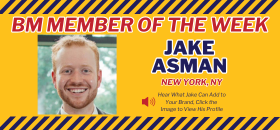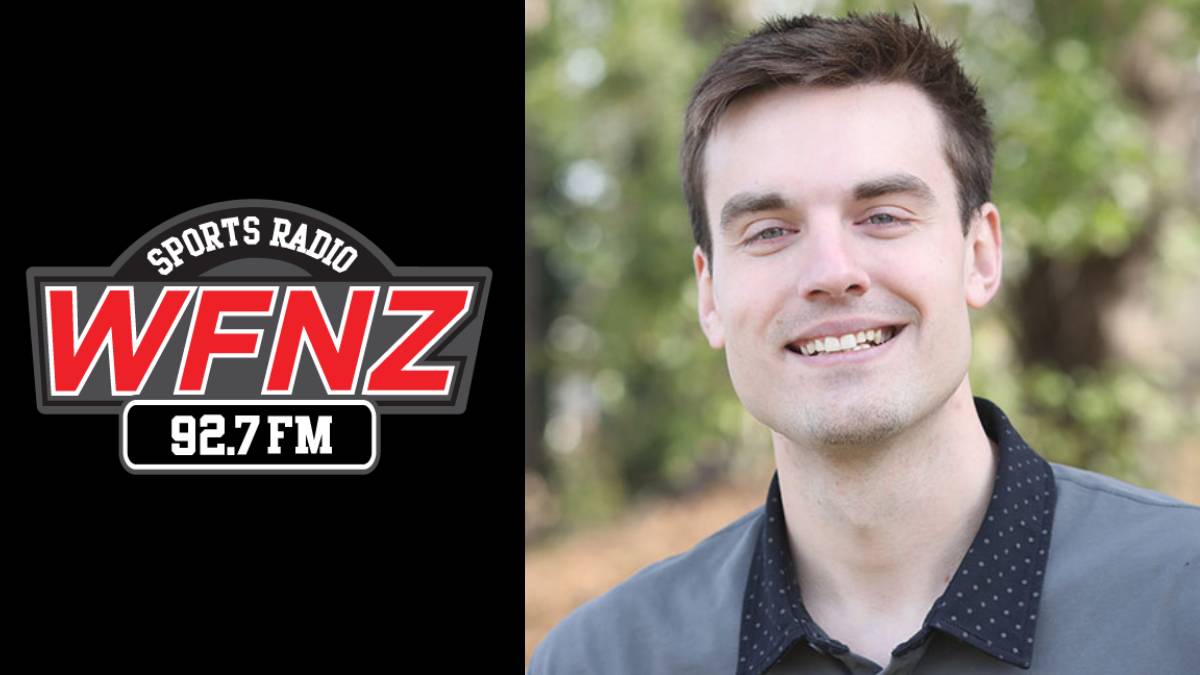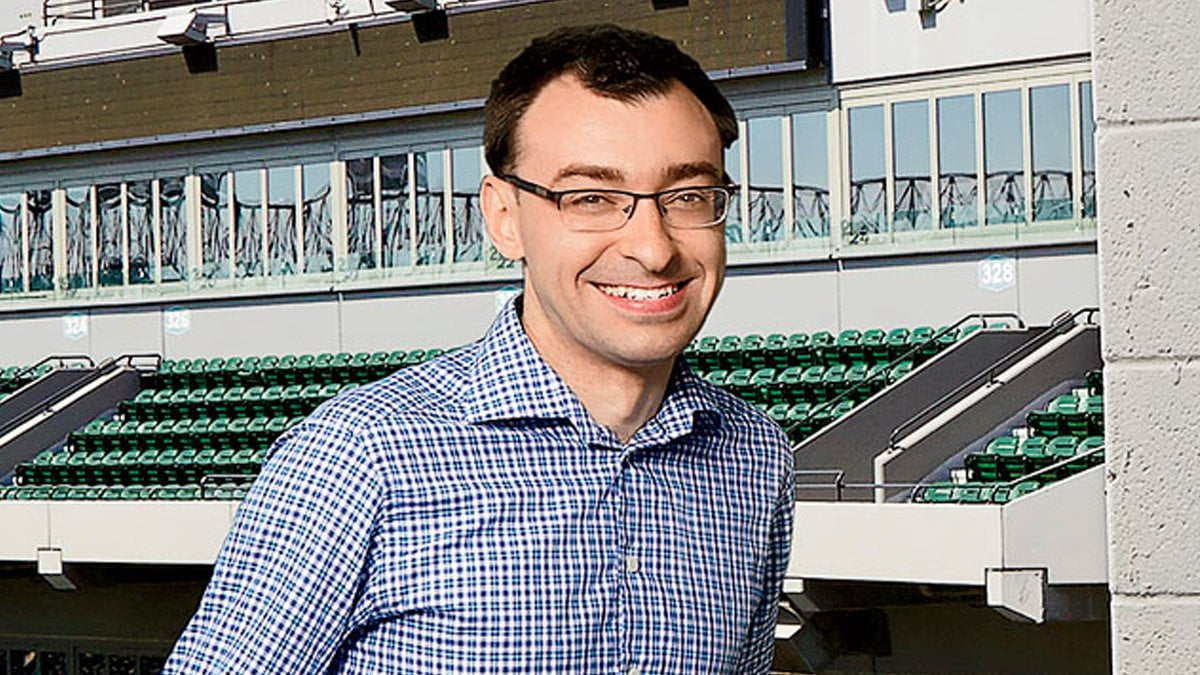To really understand how something works, you might need to take it apart. My brother-in-law is a master electrician and a mechanical tech. When he was a kid, he would take apart all kinds of stuff and reassemble it. It gave him a deeper knowledge of how things fit together. Walker Mehl of WFNZ in Charlotte is basically the sports radio version of this.
He puts a lot of thought into how his show works, and how the listeners tie in as a result. He’ll think, why did this segment work? What can work even better? Why are people listening? What’s getting them to tune in or tune out? It’s a smart, analytical approach that gives Walker a deeper understanding of many aspects of his show. It also sets him up for more success going forward.
This week marks the one-year anniversary of Wes & Walker. Co-hosts Wes Bryant and Walker Mehl are developing more chemistry and finding a better rhythm the more they work with each other. Think the opposite of the Charlotte Hornets. (Sorry, cheap shot.)
Walker Mehl was born in Indianapolis but moved with his family to about an hour north of Charlotte when he was two years old. Along with his weekday show on WFNZ, he hosts the Locked On Hornets podcast and calls basketball games for Queens University of Charlotte. In the conversation below, Walker Mehl talks about his level of interest in sports radio compared to play-by-play. He also touches on having a producer’s mindset and not being a goal guy. Enjoy!
Brian Noe: You’re celebrating the one-year anniversary of Wes & Walker this week. What have been the peaks and valleys of the show over the first year?
Walker Mehl: I think what’s good is that Wes and me already knew each other. So when Jeff (Rickard, WFNZ Program Director) asked me about possibly teaming up with Wes, I said yeah. From my experience, knowing him, we had already gelled real well together. We had common interests. I had him on my show at ESPN 730 a couple of times. He would even be a weekly guest at times. We already had a pretty good familiarity with one another, developed some level of friendship, and had some level of chemistry already starting.
I think the peaks have been just knowing each other, finding that common interest, and figuring out what works well for us. We haven’t really had a lot of valleys, man. I don’t think we’ve had too many lows. I think, for the most part, we just all get along real well. I think we’ve found a nice workflow with one another, including our producer. I think it’s been going well over the last year and obviously hoping to build on that.
BN: What area do you think you’ve grown the most as a show, as a unit over the last year?
WM: I think for the most part we’re starting to figure out our flow of going back and forth where I’ll drive quite a bit of the time. It’s just finding the right time to drive a little more smoothly, just being a little bit more fluid. I think for the most part we’re starting to figure out when to have fun and when to focus and talk a little bit more about the Carolina Panthers.
It’s really been about the rhythm of the show that’s grown quite a bit. I think we’ve really grown upon that, where it’s just finding the right time on who needs to talk. If I’m driving, it’s when to kick it to Wes. I like having a community-based show, I like a ton of voices on, and I like Fitty, our producer chiming in quite a bit. We’ve been trying to find the right ratio with that. I think it’s just when to go to each voice.
I think we’ve grown quite a bit and started to figure that out because that’s hard. That’s hard to figure out every show. I think we’ve grown a lot in the last year of knowing when to talk and whose turn it is.
BN: What’s it like working for a PD like Jeff Rickard who also hosts a show?
WM: I actually had experience at the previous station with that, too. To me, this is kind of all I know to be honest. The program director also hosting a show, this is what I know. I’ve talked with people in the industry, though. I guess a lot of people don’t love that. I think the idea is that your program director shouldn’t be on-air because they should be listening to all the other shows and trying to figure out what works best, but this is what I know.
As far as working with Jeff, I think my favorite thing about Jeff is as soon as we had a good idea that I was going to be a co-host on the midday show, it was him telling us, “Hey, I’m going to give you suggestions, I’m going to talk about what might be a good idea, but this is your show and it has to be your show.”
I think, for the most part, he’s been pretty hands-off and letting us do what we wanted, letting us figure it out. Because if we’re not comfortable with it, then you can’t expect it to be a good product. That’s what I really enjoy.
I like to consider myself a pretty creative guy. I think coming from a producer background, that’s how you get started, right? Interning, producing, doing a lot of things behind the scenes, doing a lot of editing, putting together some imaging. I like the fact that he said, “Yeah, here’s your platform. We’ll talk during some meetings, whether it be post-show, but it’s going to be your show. You guys have free rein for the most part to do whatever you want.” That was what I liked so much on top of him just embracing us and being so welcoming, that was nice. But that was my favorite part about what Jeff was discussing as a program director for us.
BN: What’s your least favorite part? What do you hate about Jeff Rickard? This is a safe space. [Laughs]
WM: [Laughs] Oh, let me tell you about all the stuff I hate. No, look, one thing about Jeff, I love talking about the never-ending puzzle piece that is radio. I love what subconsciously makes listeners tune in to your show every day. It’s going to change the next day, and it’s going to change the next week. That’s what I love talking about. There are so many different things to discuss.
Radio is crazy, right? Hell, you know about it, it’s just trying to figure out what makes the listener continue to tune in to your show. Even if they don’t know about it, listeners might not be able to articulate what they like, but they’re not dumb. They know what they like and what they don’t, and they’re going to change it if they don’t like it. But you’ve got to try to figure it out to the point where even if they can’t articulate that to you, you’ve got to figure it out.
I think talking about that kind of stuff with Jeff has been really interesting. So yeah, clearly, it would benefit me not to say anything bad. Oh, he’s the best boss ever, there’s nothing wrong. But I really don’t have any complaints. There’s just nothing that I could say that would be like, yeah, that’s a real problem I have with Jeff. He’s been great. I really appreciate him giving me the opportunity and letting us just have our time to do whatever we want with the show for the most part.
BN: If you can think back to when you were a producer, did you find yourself thinking more times than not, “I like what this host is doing, and one day I’ll try to work that into my own style”? Or did you find yourself thinking “I wouldn’t do it like that, I’d do it a little bit differently if I’m able to be a host one day”?
WM: Yeah, this is the stuff I could talk about all day. I think both. I think one of the hardest things that sounds so simple, is being yourself on-air. Because so much of what you know, listening to radio, watching sports television is, oh, I love this person, I want to do exactly what they’re doing. Maybe early on, you try to imitate more so than be yourself and find your own lane, but draw inspiration from that person. You can’t just do copycat stuff.
For instance, I’m a huge fan of Dan Le Batard and Bomani Jones. Those are a couple of people that I look up to. Even if I don’t listen to Colin Cowherd all that much, clearly, he’s very, very good at this. Dan Patrick, his inflections and his cadence, his interviewing. I do listen to a lot of different areas and I try to figure out, “Okay, I can’t copycat that, I can’t copy and paste it and do exactly what they’re doing.” But what sounds right, coming from me, drawing inspiration from them, maybe playing with whatever they’re doing that works so well for them.
It’s hard to try to figure that out. People will call you out for it. There was a time earlier in my career where I think I sounded too much like Dan Le Batard. I think there was a cadence that I rolled with and somebody said, “Man, you sound just like Dan Le Batard.” I was like, “You know, that’s probably not a great thing.” It’s a compliment, but it’s also you’ve got to try to figure out who you are.
I’ve done a lot better job at that. Even with working as a producer for certain hosts here in Charlotte. Yeah, there have been times where I’d like to steer it in this direction, or that’s not how I would’ve talked about it, or how I would’ve even acted with that topic. It’s the easy answer to say it’s both, but it really is. It’s both trying to figure out what works best for you.
BN: Do you see yourself more as a play-by-play guy?
WM: No, it’s funny you bring that up, man. I used to be interested in it a little bit. But I love talking about sports more so than I like having the play-by-play. Not even so much how tough it is, I just enjoy sports talk way more. You get to be way more creative. That’s, at the end of the day, what I love so much. I love putting together segments.
We were celebrating our birthday all day long. Before the show, I wanted to put together some of the best moments and have that playing all throughout the show. We did the Stevie Wonder birthday song in the background. I love putting together imaging. I love putting together segments. And with that producer background, being as fun, as creative as possible. I just don’t think play-by-play lends itself to that.
And I really don’t have any interest to be the voice of a team at all. I enjoy it, I do color work now for Queens. It’s fun to do it in those times, but as far as being the voice of a team and stepping away from sports talk, never. I would never want to do that as much.
BN: That’s cool, man. It’s funny, as soon as you say that, watch, all these play-by-play doors will magically open. And you’re going to be like, “Man, I just want to do sports radio.” [Laughs]
WM: That’s what I want to do. There’s a lot of people that love doing play-by-play. I enjoy it. I love a good play-by-play announcer, of course, I respect the hell out of the gig. I’ve got a ton of respect for those guys. Those guys are crazy good at what they do. I just have not gotten bit by the play-by-play bug.
Sports radio is by far what I’d like to do more just because I want to immerse myself in all the creativity possible. That’s what I love. And you’re just limited to that with play-by-play. So yeah, this is what I like doing. I’m doing it.
BN: Being a young guy, so much ahead of you, do you think more short-term or long-term when it comes to goals?
WM: I don’t have a great answer. You would think I’d have something better by now, but I think what I’ve kind of reduced my answer to is always move forward. I care about getting better every day. I really do. I care about what works for listeners, what works for me.
What I’ve reduced it to is always move forward. I don’t know if that means becoming a 15-year-long show in Charlotte. I love Charlotte. I’d love to stay here as long as I can, but I just have no clue what’s going to be on the horizon.
I think right now, always move forward within the city and figure out how to be better every day. That is such coach speak, I’m vomiting a little bit even saying that. But I really do care about getting better, having as much fun as possible, and thinking about what I’m going to say. And what’s the most approachable, what’s the most digestible way that you can put something together for the listener to enjoy? I focus on that, and as I do that, we’ll see what opportunities come along the way.
BN: I hear you. Players always say one game at a time. And you roll your eyes. You’re like, I’ve heard that a million times, but it’s so true. If you start thinking beyond that, it can get in your way. Especially in radio, man, and how crazy it is. I think it’s just one show at a time, that’s probably the best way to approach it.
WM: Yeah, I hate myself. I have talked so much about how boring that kind of talk is and then I do it myself. For me, it’s hard for me to say, oh man, in five years, I’d love to take over a timeslot.
In 10 years, I’d love to get attention nationally. I don’t have that. I think it’s so important to have as much fun as possible at your job because it’s going to help you in life.
So many people have talked about half the battle is just being in a good mood. When you’re in a good mood, your show is often good. That’s half the battle, man. If you can do that, and then you can continue to build upon it, a lot of things take care of themselves.
Yeah, you’ve got to put the work in, you’ve got to figure out how to be different, you’ve got to figure out how to put on a good show. But if you have fun while doing all that, a lot of things take care of themselves. I really do focus on that. For right or wrong, that’s just not who I am. I don’t have a five-year plan. I don’t have a goal in five years. My goal is just to build the show up as much as possible, then figure it out from there.
Brian Noe is a columnist for BSM and an on-air host heard nationwide on FOX Sports Radio’s Countdown To Kickoff. Previous roles include stops in Portland, OR, Albany, NY and Fresno, CA. You can follow him on Twitter @TheNoeShow or email him at bnoe@premierenetworks.com.








